Wednesday, February 17, 2016
29 Amazing Literary Magazines You Need To Be Reading
And you thought your reading list was long already…
Fields Magazine

What it features: Fiction, poetry, essays, visual art, interviews and profiles on up-and-coming creators.
How to read it: Print only ($12/issue)
Why it's great: "Not only does it showcase a changing part of Texas, but it also features up-and-coming artists and writers from across the country in interviews and profiles. It’s a great way to find out about underground art created by conceptual sculptors and experimental screenwriters. Also, its Instagram account tracks all the coolest art galleries and concerts in Austin." —almondmilkandcoffee
A Public Space

What it features: Modern fiction, poetry, essays, art, and international works in translation.
How to read it: Print and digital ($36/one-year subscription)
Why it's great: The nonprofit Brooklyn-based mag is celebrating its 10-year anniversary, and it still feels like incredibly fresh. Founder Brigid Hughes (formerly of The Paris Review) has described the work as "push[ing] the bounds of traditional narrative" for a "culturally curious" readership. (Recommended by Niela Orr.)
wordsonstrings / instagram.com
Tuesday, February 16, 2016
Everything I Know About Sex I Learned From Harry Potter Fanfic
It all started when I was trying to find out where to send my Rupert Grint fan mail.
I was 11, and a Yahoo search led me to the official Warner Bros Harry Potter forum, and that’s where I found my very first sex mentor, let’s call her xxSlytherinXXXSweetie<3xxx. Her avatar was a svelte blonde doll, she typed in yellow Arial against the edgy-for-the-noughties black site background, and when she talked about Draco Malfoy’s 6-inch-long cock (lol OK), she had to spell it “co.ck” to trick the website’s decency filters. She probably didn’t know that her slightly naughty (but mostly just bad) fan fiction would make me blush, or that that garish yellow "co.ck" would live in infamy as my initiation into a culture that defined my teenage years. As they say, you never forget your first.
Offline, I was a sheltered military brat; I spent most of my time with my church youth group, or watching the Disney Channel and reading children’s fantasy books, so I had never really come in contact with much sex slang. Even now I can’t read the word “cock” without visualising that little dissecting full stop. Even when we’re talking about chickens. Or raised eyebrows.
Being scandalised by a mediocre sex scene was not something Hermione, the ultimate heroine of my rich teen fantasy life, would do. (Especially not the Hermione of this fic, who was too busy getting drilled by Draco in a magical soundproof bubble in the Prefects’ Toilet to be worried about the shock value, or worse, grammatical sin, of a pretty arbitrary epithet for junk.) But the idea that a character I knew, loved, and admired, could be doing something that felt so far beyond my maturity level is something I thought I should be worried about. Something I was ill-equipped to deal with. This was grown-up stuff, and grown-up stuff is scary. At 11, I was only about 10% curious about it; the remaining 90% cringed from sex in every other aspect of life. Too busy organising Beanie Babies and lip-syncing to Mandy Moore, thank you very much.
I'm what you'd call a late bloomer.
I’m what you’d call a late bloomer; I’m not quick on the uptake. I’m fast to blush and slow to adjust to change. Things rarely happen at the right time for me: I never felt like I was keeping up with my friends. Half the time I feel like I’m not keeping up with myself.
For example, my romantic and sexual awakenings were very different things. While the former was all fireworks and sunshine and Rupert Grint’s fucking beautiful blue eyes (Rupert – call me), my sexual awakening was more of a I-hit-snooze-three-times-and-this-alarm-is-loud-but-goddamnit-I-will-stay-in-my-bed scenario, plus presumably some teen film star’s hot bod? I honestly couldn’t say. My desire for sex always made much less of an impact than my petrifying fear of the unknown.

Rebecca Hendin / BuzzFeed
While I can’t tell you who made me go weak north of the knees as a teen, I can give you a list of approximately 70 boys, real, fictional, famous, or otherwise I was chastely devoted to. What can I say? A combination of religious schooling, crippling shyness, and fear of attachment made me terrified of sex and my own body. I completed university a virgin. I couldn’t even bring myself to use a tampon for the first probably 60 periods I ever had. Even as an adult who’s had a good few years to figure this whole sex thing out, the whole deal is often plagued by an anxiety and self-loathing I can’t quite shake.
But, as a teenager, I found that that anxiety dissipated beneath the security blanket of my all-time favourite 'ship: The Internet/Harry Potter. Nothing captured my imagination as much as Hogwarts: a place that felt so human but simultaneously removed from reality. Combined with the internet, Hogwarts offered me the room to be myself, but at a raw level – to explore ideas, lifestyles, and relationships that I could never feel at ease with in the real world.
Combined with the internet, Hogwarts offered me the room to be myself, but at a raw level.
Because the internet is not the real world; it’s not a place where you are you, or even a place where your favourite characters are your favourite characters. The internet is a midsummer night’s dream where everything gets mixed up and you get to be a little bit daring and out of the ordinary. A place not unlike a magical school that exists just beyond the reality you know. Except the secret world of the internet is a lot more fucked up than the Wizarding World, not least because Harry/Hermione 'shippers live there.
That fateful Draco/Hermione fic opened the floodgates: I got pretty comfortable interacting with completely fictional co.cks online, even as I remained terrified to death of meeting one in the real world. Over the next eight or nine years, I graduated from the Warner Bros site to more devoted fansites like MuggleNet and SnitchSeeker; I even did a stint as a moderator on SnitchSeeker. Sixth-grader and new kid Chelsey was a bit of a shy mess IRL, but ronweasleyrox (seriously, Rupert – please call) was a very trustworthy, responsible content manager. It’s a shame I can’t put it on my CV. When I wasn’t cleaning up spam on Invisionboards, I was busy exploring my first love: bad fucking fan fiction.
I read anything. I read everything. I consumed one-shots the same way I devour a full bag of oven chips after a night out, the same way I would – and still do – knock back questionable YA books. Reading fan fiction was easy, fun, and most importantly, it was the most subversive thing I had ever done in my painfully safe suburban upbringing.
My first exposure to protected sex discourse came from a fic in which Ron and Harry dive for the Bertie Bott's Every Flavour Condoms.
I learned about blowjobs from a 200-chapter Marauders’ Era epic. My first exposure to protected sex discourse came in the form of a particularly memorable LiveJournal-based fic featuring a subplot in which Ron and Harry realise they’re more than friends and dive for the Bertie Bott's Every Flavour Condoms. I held my breath when Lavender got pregnant with Won-Won’s baby, and I sighed with relief every time Ron and Hermione had a passionate, detailed makeout. I read steamy sex scenes for every imaginable pairing in the Wizarding World, and moved on to crossovers like a cringeworthy but interesting The Last Five Years-inspired Snape/Hermione one-shot. What a world.
But it was also more than just sex. Fan fiction was my first exposure to LGBT couplings, and welcoming my favourite characters’ imagined choices to love and fuck whoever they chose would be a huge part of enlightening me about the LGBT community, whose voices were otherwise not present in my life at the time. A narrative about Hermione’s struggle with anorexia would give me some comfort when I struggled with my own body image. Even the staunchly PG-rated submissions on FanFiction.net taught me about grief, isolation, and mundane teenage angst – all in a firmly safe place.
There was something about these scenarios in which my childhood heroes could twist into new shapes that gave me a way to confront all of the strangeness of growing up even when, in all the other aspects of my life, I was refusing to do so. In the meta-fantasy world of fan fiction, I could hold these characters up as mirrors to my experiences, or as lenses into things I was afraid to experience. I could take two steps back to see all of the unfocused mess of the world at a safe distance. And when I was done playing make-believe online – when whatever uncomfortable or unfamiliar thing Hermione (always) et al were going through was over – I knew I could always find them again, untouched and safe, in canon.
Fan fiction, unlike a novel printed into permanence, was a map drawn in dry-erase. Gone, not real, the second I closed the window. It never fucking happened. Not to me, and not even to my favourite imaginary friends.

Rebecca Hendin / BuzzFeed
At the same time that I was sneak-reading Ginny Weasley/Tom Riddle erotica, I was attending a strict Christian school where sex ed was mostly “God says don’t” and an unforgettable assembly where pop songs were performed as warnings against heavy petting and drugs. Oh, and where Harry Potter books were banned. While 7am saw me outfitted in floor-length skirts and WWJD bracelets, midnight found me curled up in my kitty pyjamas, trawling through a bookmarked gallery of LiveJournals, fan forums, and FanFiction.Net on the family desktop. It was there that I learned to settle into myself, if even just a little bit. It’s where I grew up, to the extent that I could at least fathom sex even if I couldn’t do it. It was there that I felt in charge of my own life and choices, and got to try on different personalities and different lives, and it was there that I became a writer.
More than anything, fan fiction became my one-stop primer on all things: sex, bodies, politics, lonely teenagehood. It was my nerdy version of Cosmopolitan. It didn’t tell me what to do; in fact it offered bizarrely shit advice. But in a small way it prepared me for the world, and in a big way it made me braver – even if I’m still at my bravest when there’s a screen and a keyboard between me and everyone else.
PS: Rupert, if you’re reading this, I would ever so much like a follow-up to our 2003 correspondence. “Eat slugs, Rupert Grint x” isn’t enough to keep me going forever, you know.

More from #BFFanFictionWeek
How Writing Fanfic Introduced Me To Myself
7 Things You Should Know About Kate DiCamillo's New Novel
“I hope that readers laugh. I hope that they think about their souls.”
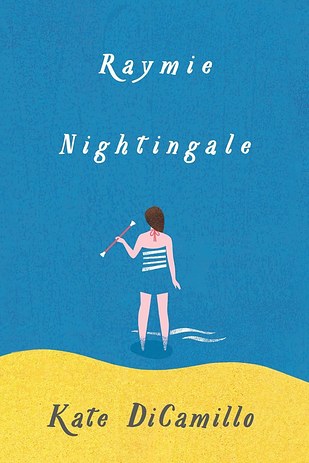
Candlewick Press

Kate DiCamillo is a two-time Newbery Medal-winning author who has gifted the world with children's stories like The Tale of Despereaux and Because of Winn-Dixie. And now, DiCamillo has written another novel to add to her collection of beautiful stories.
Raymie Nightingale, which will be published this April, is about a 10-year-old from Florida named Raymie who enters a local beauty beauty pageant as an attempt to get her dad to notice her after he left their family for a new life.
BuzzFeed had the chance to catch up with the author over email and learn about Raymie Nightingale. Here's what she had to say:
First Season 2 Trailer For "Daredevil" Shows Us Punisher, Elektra, And Lots Of Punching
The Walking Dead star Jon Bernthal is looking like a spot-on Frank Castle.
The first trailer for Daredevil's second season is finally here, and it's a doozy.
The trailer focuses heavily on Punisher, played by The Walking Dead's Jon Bernthal.

Glimpses of his life include a children's book that he recites from as he prepares to take out some criminals with his small arsenal of guns.
Netflix
As for Matt, his Catholic guilt is alive and well.
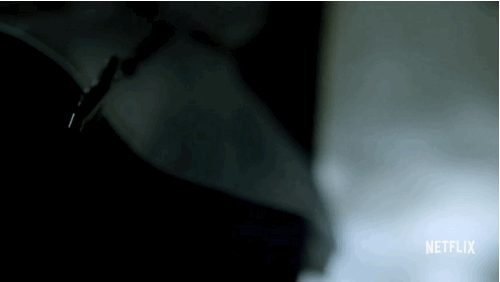
"Why do I still feel guilty?" he asks his priest.
"The guilt means your work is not yet finished," the priest responds.
Netflix
It looks like we'll get at least one more awesome hallway fight.
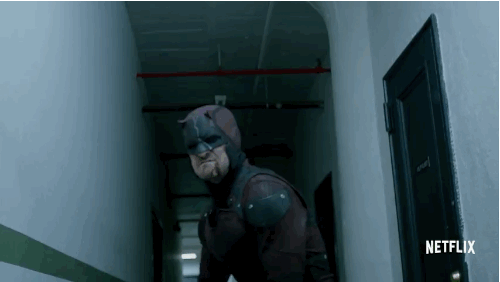
Netflix
Monday, February 15, 2016
26 Gorgeous New Covers For Classic Books
Delightful designs for brilliant books via Recovering The Classics
Recovering the Classics is a collection of original covers for public domain books.
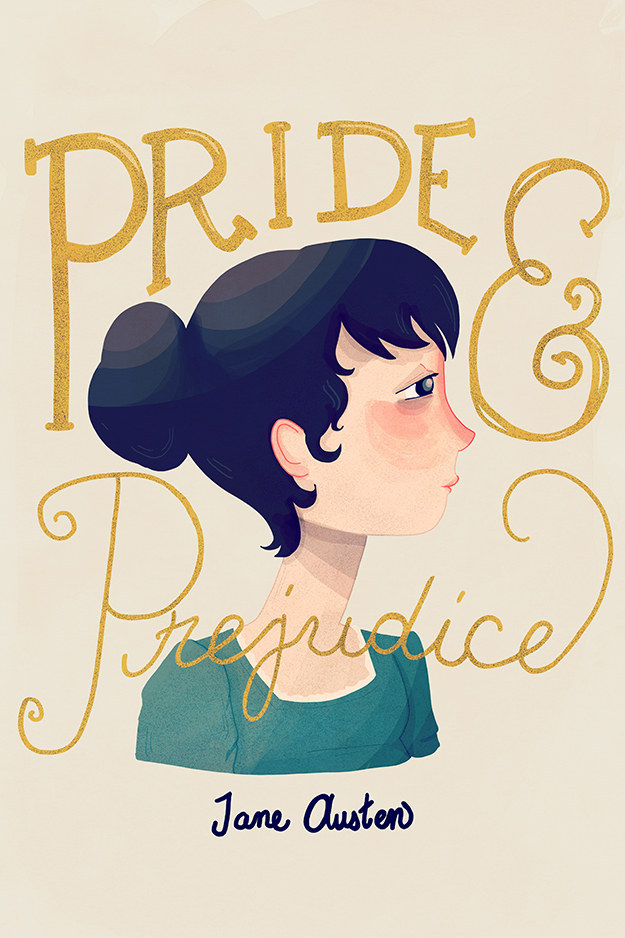
Nan Lawson / Via recoveringtheclassics.com
Anyone can contribute a cover, with the aim to give a fresh look to classics both beloved and overlooked.
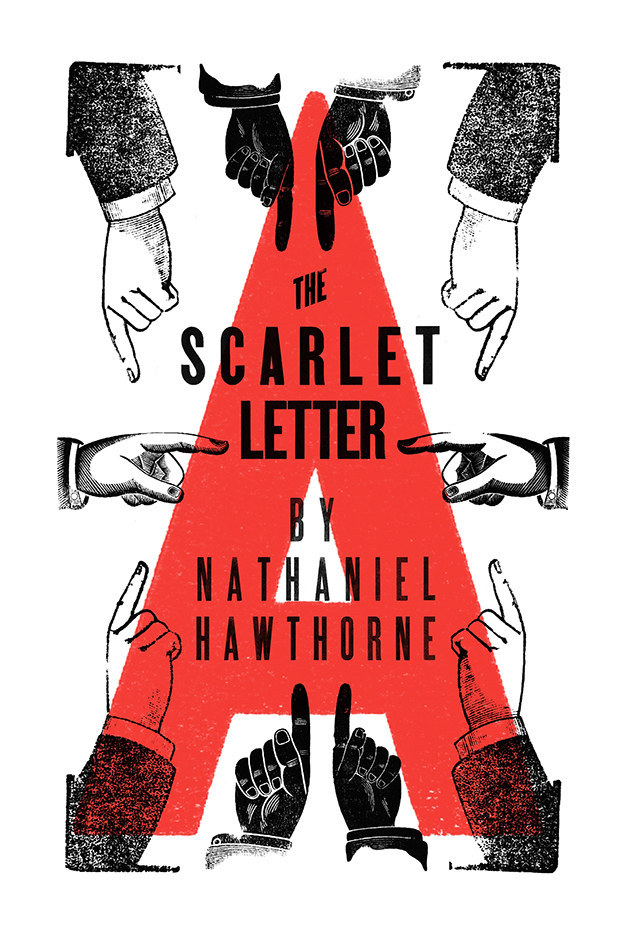
Mr Furious / Via recoveringtheclassics.com
There are also posters, hoodies, and t-shirts available, with proceeds going to the artist.
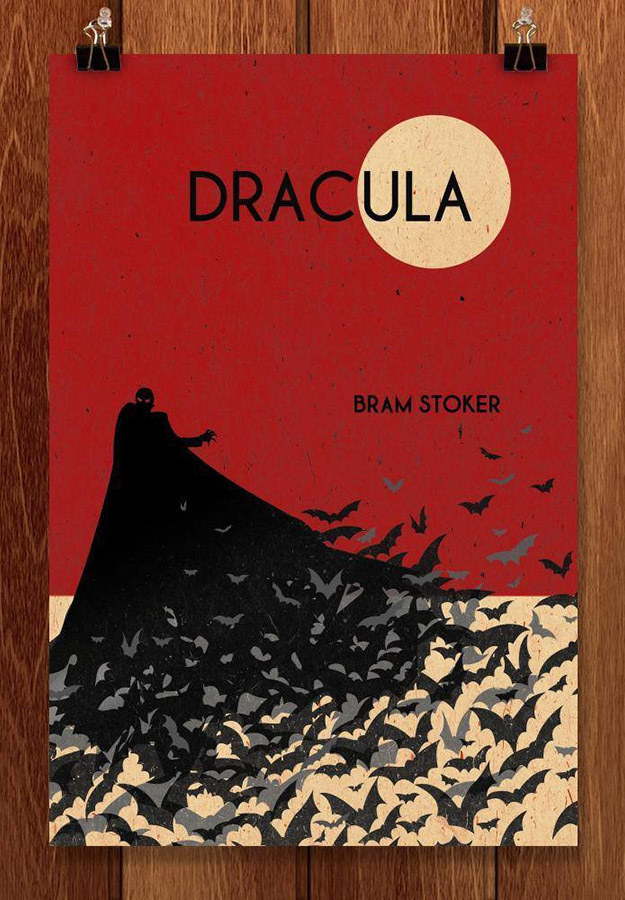
Becki Kozel / Via recoveringtheclassics.com
Here are some of the best covers...
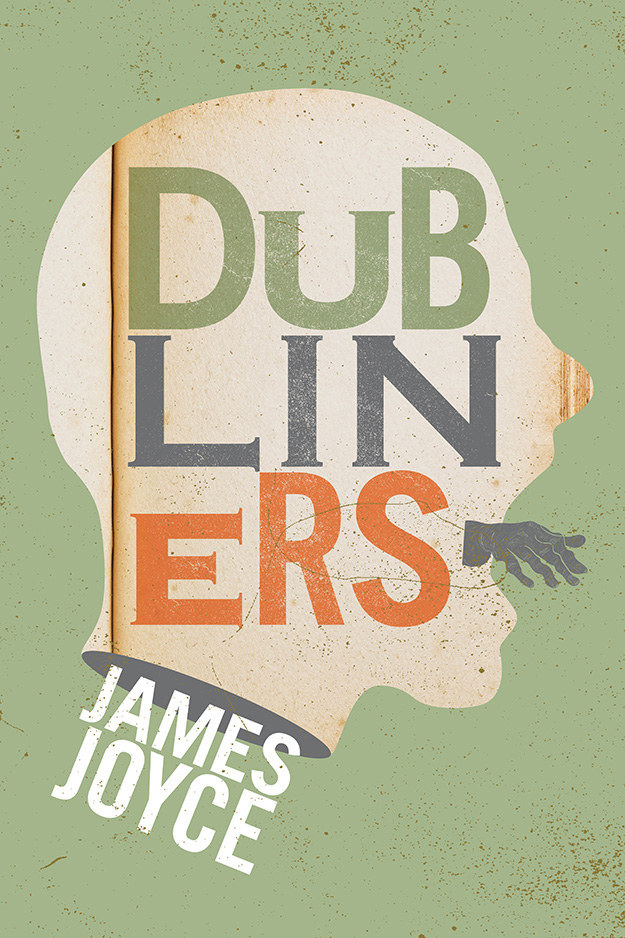
Devin / Via recoveringtheclassics.com
This Photo-Series Of Indian Kids Playing Quidditch Will Transport You To Hogwarts
AND I STILL HAVEN’T RECEIVED MY LETTER?!?!?!?!?!??!?
Photographer Anshu Agarwal recently uploaded a series which involves children in a remote Uttarakhand village "playing" Quidditch, a sport every Harry Potter fan wishes was real.
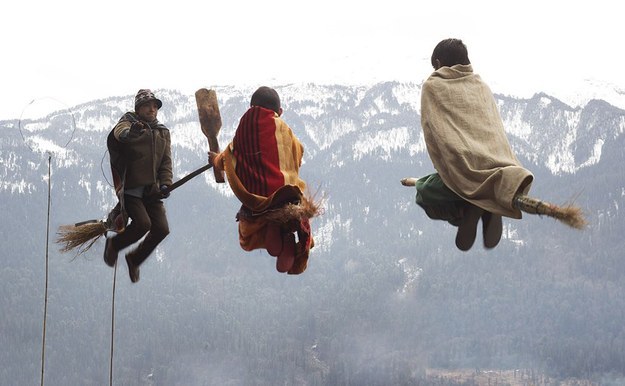
Agarwal works as a teacher in the village.
Anshu Agarwal
"I show the kids Harry Potter movies on Sundays," Agarwal told BuzzFeed India. "They once fantasised about being witches and wizards themselves."
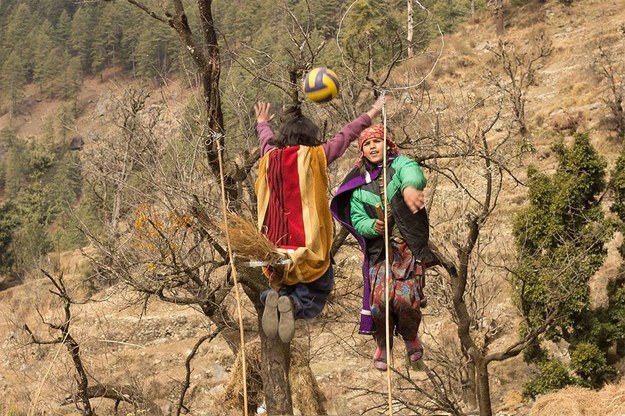
Anshu Agarwal
Kalap village is 210 kilometres away from Dehradun, the closest railway station. The children were filmed by Agarwal using the technique of levitation photography.
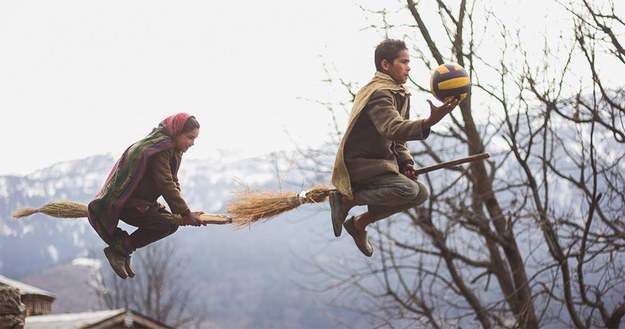
Anshu Agarwal
"When I told them I could give them flying lessons, they were so excited they literally dragged me to the fields. It took four Sundays of hopping on a one-foot-high wooden bench to stash enough material for the final images. "
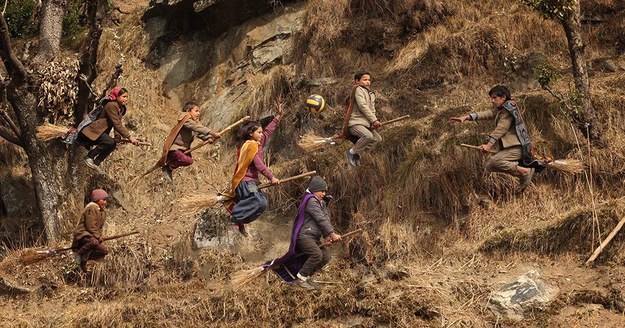
Anshu Agarwal
22 Books Every Twentysomething Guy Needs To Read
These works of art will literally make you a better man.
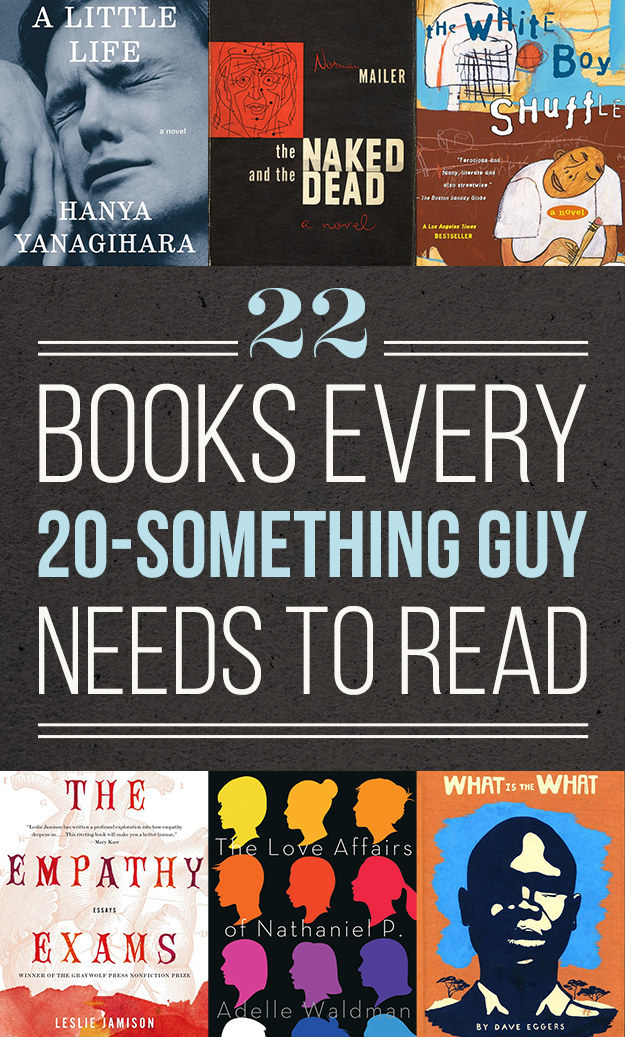
Alice Mongkongllite / BuzzFeed
Bad Feminist by Roxane Gay
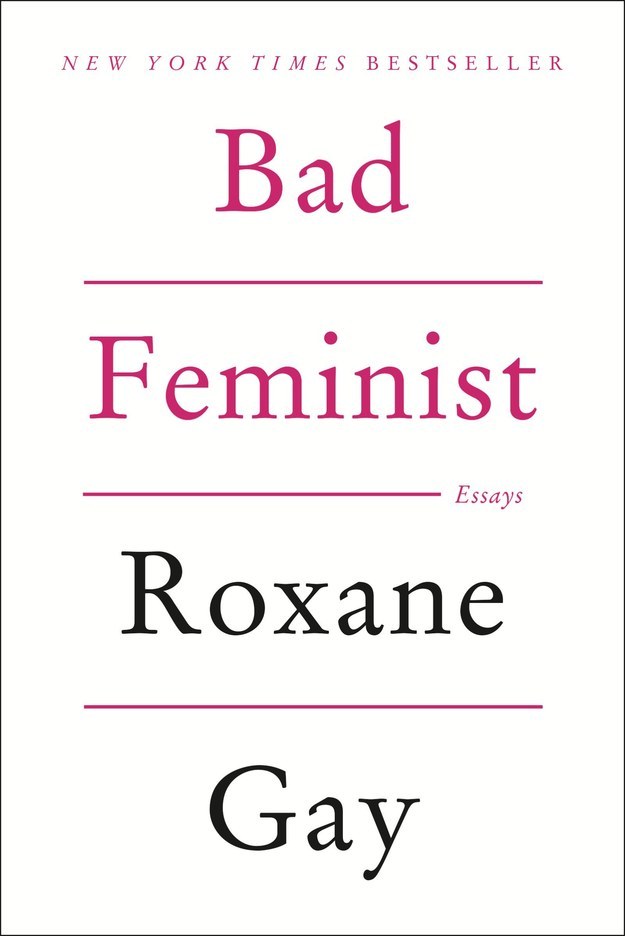
Bad Feminist is a collection of essays where Gay writes to debunk common and demeaning stereotypes about feminists and feminism. Reading this book will help show you a different view of the current state of feminism and help to open your mind.
Price: $12 (Kindle) $9.99 (Paperback)
Amazon / Via amazon.com
The Love Affairs of Nathaniel P. by Adelle Waldman
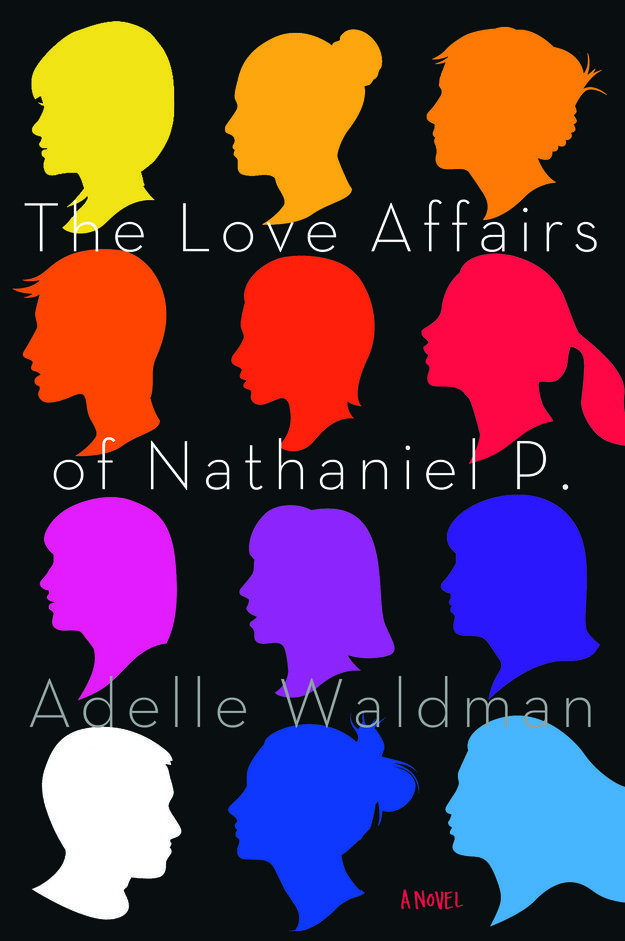
This book is an excellent look into heterosexual dating in today's climate, from a man's perspective but written by a woman. It's easy to get wrapped up in Adelle Waldman's first novel as it tells the tale of a "self-absorbed writer living in NYC," after successfully writing his first book and emerging from a "freelance lifestyle" the protagonist tries to deal with the newfound attention from women, including his ex-girlfriend.
Price: $9.99 (Kindle), $21 (Hardcover)
Amazon / Via amazon.com
Giovanni's Room by James Baldwin
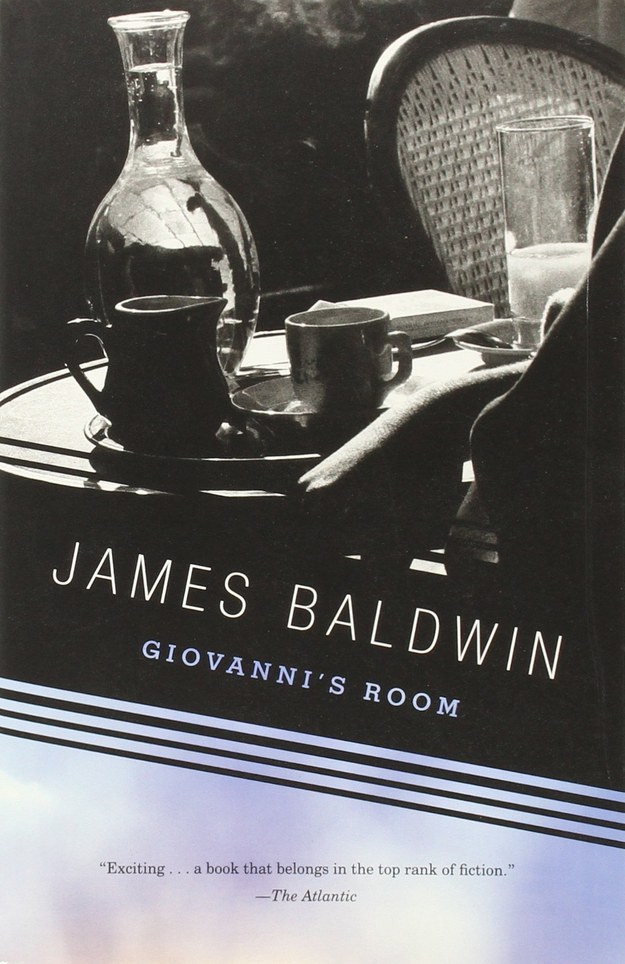
James Baldwin's 1950s classic, Giovanni's Room, is just as relevant today as it was when it was first written many years ago. It tells the story of an American ex-pat and his liaisons, the violence against him and his struggle between dealing with his own desires and morals.
Price: $9.99 (Kindle), $15.75 (Hardcover)
Amazon / Via amazon.com
How I Found Myself In Fan Fiction
It's hardly a unique position but when I was a teenager, I felt seriously uncool. Nerdy, geeky, awkward, whatever you want to call it. It was bad – we probably haven’t even yet discovered the unit of measurement that can sufficiently describe my state back then.
This isn’t one of those and then I became a swan! essays, though – your narrator remains, for the most part, as awkward as ever. Thanks to time and many mishaps, I am managing to stumble my way into that serenity prayer of accepting that which cannot be changed. Science says the average human being is about 60% water but here's how I imagine I break down: 20% affinity for '80s soft rock; 30% devotion to useless facts; and 50% eternal thirst for reading, a solid proportion of which is devoted to the glory that is fan fiction.
Better scholars than me have mounted strenuous defences of fan fiction. To me, the debate (fan fiction versus "proper" books) has always seemed strange – surely there’s space for everything. I’m a writer, so yes, I read a lot of books, but I also think you should take your pleasure (and your learning) where you can find it. If that occasionally/sometimes/frequently happens to be on a website where the collective fangirling is such that it could legitimately serve as an alternative source of renewable energy, then so be it – let’s go live our best lives.
I was about 12 when I wrote my first book. I’ve long since lost the manuscript but I remember it was called Sparring Partners, a title I’d “borrowed” from one of my sister’s Mills and Boon novels. It was a buddy cop comedy/romantic drama set in New York, which also had, inexplicably, a subplot that closely mirrored the narrative beats of Point Break.
Getting those words down felt like meeting myself properly for the first time.
I wrote over a hundred pages, both sides, in handwriting that changed from paragraph to paragraph, the ways kids do when they’re still figuring out different ways to be. All nostalgia aside, I’m absolutely certain Sparring Partners was terrible. But what I recall most about the writing of it was that the simple act of getting those words down, armed with just a Bic and a lined A4 pad – blue feint, pink margin – felt a little like meeting myself properly for the first time.
But soon there were important exams to be studied for, and a real life in the real world to be mapped out and made. Intentionally or otherwise, the message was that writing should be set aside.
So my writing stopped but my reading never did. When was the first time I came across fan fiction? I have a vague recollection of being surprised: So this is a real thing people do? It gets hazier after that point, because then, Reader – I married the internet.
My family thought I was being conscientious over my studies when I cursed the horrors of our unreliable dial-up connection and frowned at the temerity of people wanting to use the landline during normal waking hours, but really I was just craving those stories. It meant a lot of my fanfic reading was done at night: tumbling down the virtual rabbit holes of my favourite shows, lights off, with just the glow of the computer screen illuminating my face. These were the days my heart belonged to Angelfire websites and LiveJournal. Nowadays I’m usually Tumblr-bound, but the overall effect is pretty much the same.
The fanfic world is vast and I’ve only ever known a tiny corner of it, but that’s fine: I live in and love my wheelhouse – that wonder of wonders, the One True Pairing. My everyday acerbity dissolves when I am reading OTP fanfic. I can track my age by some of my favourite OTPs, the same way you age a tree by its rings. There were the Shawn and Angela days – distant now but still heady; my Mulder and Scully phase that fizzled out before the show did; Sam and Mercedes – an OTP that truly was a cinnamon roll too pure for this world, because its fandom cared more for it than its own show ever did. More recently, there’s been Rae and Finn, who I’ve mentioned in a previous piece. (In the course of writing it, I transcended into my final form: a giant heart eyes emoji listening to "Wonderwall" on repeat.)
I can track my age by some of my favourite OTPs, the same way you age a tree by its rings.
If the writing’s good and it’s about one of my favourites, there is no overplayed trope I will not accept. The meet-cute stories? Roll up, roll up! The "we’re not a couple but for some reason we’re going to have to share this bed" hijinks? Write me another! The "we couldn’t stand each other’s guts at first but oh, wait – now I think I love you" ones? I will read them all in their infinitesimal variations for as long as I am a sentient being.

Choosing a fandom is one thing but putting down roots in a particular community can be even better. Like any group, fanfic boards can be subject to weird tensions, wrongdoings, and implosions. Every now and then there might be plagiarism scandals (seriously, people – don’t do that), overbearing individuals who spoil things for others, and then that inevitable bittersweet time when the posts start to dry up because the fandom is fading and eventually, you disperse.
At its best, though, it can feel amazing. The boards are many things, not least brief, beautiful windows into the lives of people you’ll probably never even meet. And you’re all there because you love a TV show (or a play, or a book, or film) so much that you’ve found ways to not let it end.
There are equivalents of the literary bestsellers – people whose fanfic gets the most notes, follows, and comments – but even if you’re not one of that elite crew, someone, somewhere, is likely to give you a thumbs up. I’ve seen people explore matters of gender, sexuality, mental health, disability, and body image in sensitive and complex ways, which, historically at least, were often not represented in "standard" publishing. There’s also the beauty of seeing writers get better at their craft, blossoming from story to story – and eliciting the same burst of excitement as when I take down a favourite author's latest from a bookshop shelf.

Charlotte Gomez / BuzzFeed
My own foray into writing fan fiction was relatively short – several years off and on, mainly in the Dawson’s Creek fandom (and yes, I still judge the content of a person’s character if they say they wanted Joey with Dawson in the end). If you imagined there were only so many ways to tell the story of Pacey and Joey, then I and a bunch of other writers would have said the ways of telling were infinite, dependent only on the reach of our imaginations.
I used to be embarrassed about the fact that I wrote fanfic: Part of me felt like others would think it was an overly intense way of engaging with a show. But then I didn’t talk much about my "original" writing either – perhaps it was a general discomfort at showing how much my writing, whatever format it took, meant to me.
These were the stories where I started to believe I was a writer.
These days, the only thing that pains me about my fanfic is the actual quality of the text: Like most writers looking back at their early work, there’s a lot to cringe over and much I’d change if I could do it all again.
Yet those were the stories that taught me how to write to deadlines.
Those were the stories where I first properly wrestled with how to balance "people, places, plot, pace, and prose".
Those were the stories where people I’d never met were so generous with their time, so close with their reading, giving me such kind and detailed feedback, that even thinking about it today, almost 10 years later, still makes me smile.
Those were the stories where I began to understand the importance of community, among writers, but also between writers and readers. To paraphrase Junot Díaz, it’s important to make space for readers in your work because ultimately, you’re trying to have a conversation.
Those were the stories where I started to believe I was a writer.
At its best, writing is about the connections you’re trying to create and the truths you’re trying to discover.

The stories I write now have the same purpose as my fanfic, at least in part: the hope that readers will feel something resonate within them. But I’m also writing to find my way back. Back to that girl with her Biro and notepad, who thought her awkwardness was something she would grow out of.
You never quite will, I want to tell her, but that’s not so bad.
Because eventually, she’ll find a place to put her stories. Eventually she will find places where she will feel like she is part of a huge, bright, beautiful thing where people create skeins out of words. Places where the loveliest and simplest of experiences will occur again and again – people will see each other, or at least parts of each other, even the parts of which of they are uncertain and think strange – and call them fine. They will call them good.
The feeling I get when I sit down to write these days is not wholly dissimilar to how I felt sitting down to write chapter 3 or 13 of a fic: What’s the best way for me to do justice to this particular piece of work? There’s that same silence while I watch the cursor on the screen, my heart keeping time with its blinks.
And then I start.
***
Karen Onojaife's short story "Here Be Monsters" is featured in Closure, an anthology of short stories by black and minority ethnic British writers. She is a VONA/Voices fellow, and her debut novel, Borrowed Light, won the Reader’s Choice award in the inaugural SI Leeds Literary Prize.

Peepal Tree Press





Kanye West Just Spoke The Truth About College Textbooks